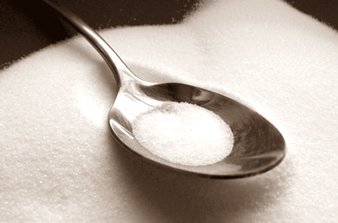
Liquor addiction - a social scourge
by Prasanna Amaranayake

People have been consuming alcohol from time immemorial not only at
joyful celebrations, but also at funerals. Have you ever asked yourself
why people take to alcohol? Since consuming liquor is generally
associated with a social setting of some kind or the other, what makes
it so appealing?
A sporting event, a family celebration, holidays, meeting friends or
co-workers after work or just enjoying a favourite beverage to
complement a meal the consumption of alcohol is generally associated
with social interaction.
Perhaps some take to alcohol as a ‘Status symbol’. Some alcoholics
say that it provides an “escape” from problems. Anxiety over jobs,
family issues or even lack of self-confidence can play a major role
which could lead to irresponsible behaviour. Sometimes, a particular
individual may take to drinks for some reason and after the addiction
his reasons change.
Types of drinkers
There are four types of alcohol drinkers. The social drinker is one
who drinks in moderation and only on special occasions for a little
relaxation among friends or colleagues. Social drinkers do not allow
liquor to control them.
The irresponsible drinker is the absolute opposite of the social
drinker. These people often head for the bar and not for the social
aspect of drinking. Problem drinkers become noisy and create a scene.
They become angry and have lower productivity ratings. Another form of
the irresponsible drinker is the underaged drinker. When an underaged
person drinks, there are several risk factors involved. A young person
may be unable to handle the side effects of alcohol. A young person is
less mature and it can become worse with alcohol. It is illegal for
underaged persons to consume alcohol and can result in legal action such
as imprisonment.
Alcoholics lose all control of their drinking habit. Since the drink
is similar to a drug, or medication for pain, a person can become highly
addicted. This type of drinkers find it difficult to cope with problems
without a drink. They are heavily dependent, and seek excessive amounts
of alcohol.
They tend to gain weight and more often than not lose jobs. Binge
drinkers often go for extended periods of time without drinking followed
by periods of extreme drinking. A person may believe he or she needs to
drink a large amount of alcohol because he had not drunk for a while. A
binge drinker is a serious risk to him or herself. It can cause
uncontrollable mood swings and is addictive. It can lead to alcohol
poisoning and even death.
 The health drinkers are those who drink alcohol for health-related
reasons or to give them a deeper sense of peace. Often they drink red
wines due to their antioxidants which are said to be good for heart
health and before bed to relax. Should someone start drinking just to
reduce the risk of heart disease? This question is commonly posed to
doctors. The health drinkers are those who drink alcohol for health-related
reasons or to give them a deeper sense of peace. Often they drink red
wines due to their antioxidants which are said to be good for heart
health and before bed to relax. Should someone start drinking just to
reduce the risk of heart disease? This question is commonly posed to
doctors.
The answer is a definite no. There are many ways to reduce the risk
of heart disease, and alcohol should not be used as a medication.
Dismissing the idea that red wine is good for health, H.K Chopra, the
Chairman of the World Heart Academy said, “It’s simply a perception
among people that taking red wine will do wonders for the heart. Why
don’t they take grape juice instead?”
What happens to you when you drink alcohol? It is a depressant, which
means it slows the functions of the central nervous system. It actually
blocks some of the messages trying to get to the brain. This alters a
person’s perceptions, emotions, movement, vision and hearing. People who
have taken too much alcohol may stagger; lose their coordination, and
slur their speech.
They will probably be confused and disoriented. Depending on the
person, intoxication can make someone very friendly and talkative or
very aggressive and angry. Reaction times slow dramatically and this is
why people are told not to drink and drive. People who are intoxicated
may think they’re moving properly when they are actually not. They may
act totally out of character.
Health-related problems
How does drinking affect your health? Alcohol consumption is linked
to many harmful consequences for the individual drinker. The short-term
health effects of alcohol on the body includes upset stomach; diarrhoea,
lack of coordination and judgment, headaches and insomnia.
Drinking alcohol can cause many long-term health problems. Some of
these problems can lead to even death.
These include heart disease (high blood pressure, irregular
heartbeats, heart damage, heart failure), cancer (mainly in conjunction
with the cancerous effects of other substances, such as cigarette
smoke), liver problems (liver damage, hepatitis, cirrhosis and cancer),
problems of the stomach, lungs, kidneys, skin, muscle and bones,
infections, mental disorders (problems with attention, learning and
memory; depression; mood swings; anxiety disorders), malnutrition and
even impotence and infertility in men.
Social and family impact
Alcohol consumption is linked to many harmful consequences - the
drinker’s immediate environment and society as a whole. Social
consequences affect individuals other than the drinker; e.g. passengers
involved in traffic casualties, or family members affected by failure to
fulfill social obligations, or incidents of violence in the family.
Drinking at the workplace leads to potentially lower productivity.
Sickness absence associated with the harmful use of alcohol and alcohol
dependence imposes a substantial cost on employees and the public health
care system. There is ample evidence to show that people with alcohol
dependence and problem drinkers have higher rates of sickness absence
compared to other employees.
It also leads to lower performance, lack of self-direction and
problems in personal relations at the workplace.
It is well established that drinking can severely impair the
individual’s functioning within his/her family.
Maternal alcohol consumption during pregnancy can result in foetal
alcohol syndrome in children, and parental drinking is correlated with
child abuse and impacts a child’s environment in many social,
psychological and economic ways. Drinking can impair performance as a
parent, as a spouse or partner, and as a contributor to household
functioning.
The drinking habit is mostly carried out outside the family and the
home. In these circumstances, the time spent while drinking often
competes with the time needed to carry on family life. Drinking also
costs money and can impact on resources particularly of a poor family,
leaving other family members insolvent.
Implicit in the habitual drinker’s potential impact on family life is
the fact that drinking and its consequences can result in substantial
mental health problems of family members. Men’s drinking often affects
women in their roles as mothers or wives of drinkers. The risks include
husband-to-wife violence, sexually transmitted diseases, and an
increased burden in their role of economic providers.
Economic impact
The economic consequences of expenditure on alcohol are significant
especially in high poverty areas. Besides the money spent on alcohol,
heavy drinkers also experience other adverse economic effects.
These include lower wages, lost employment opportunities, increased
medical expenses for illness and accidents, legal cost of drink-related
offences, and decreased eligibility of obtaining and settling loans. The
drinkers deliberately or unwittingly underestimate the amount of money
they spend on alcohol. Also, the money spent on special occasions such
as weddings and other celebrations can comprise massive expenditure on
alcohol.
However, these events have an impact on society as a whole as they
affect economic productivity or require the attention and resources of
the criminal justice or public healthcare system, or of other social
institutions.
Almost all religions condemn alcohol consumption. The Buddha was
totally against any form of alcohol consumption, even in moderation,
because of the effect it has on the mind. People with a shallow
understanding of Buddhism may believe that alcohol is acceptable if used
in moderation, justifying this in terms of the Buddha’s preaching of the
‘Middle Way’ philosophy. But it is not so! All Muslims are forbidden to
consume alcohol. It is among the major sins and one will have to account
for it on the Day of Judgement.
Whatever heights a nation achieves in its physical development would
be worthless if it cannot equally match the same high qualities in moral
and spiritual development.
Despite the huge sum of money that the Government would have earned
by way of taxes, the Government has implemented the Mathata Thitha
program to put a permanent end to tobacco and alcohol consumption in Sri
Lanka.
Since this social scourge is well understood by many, not only
funding is important, but public participation is also essential to
monitor the process and feedback with inputs by which this scourge could
be addressed more effectively than in the past.
Sugar and salt your enemies
by Susan Brady
 We do love our chips, our cookies, and every restaurant table is set
with a salt shaker and several forms of sugar, but the truth is that the
use of both sugar and salt is constantly being discouraged by new
research. Yesterday, a panel from the Institute of Medicine recommended
that the Food and Drug Administration (FDA) regulate the amount of
sodium used in processed food. And it looks like Big Brother may just
step in and protect us from ourselves. We do love our chips, our cookies, and every restaurant table is set
with a salt shaker and several forms of sugar, but the truth is that the
use of both sugar and salt is constantly being discouraged by new
research. Yesterday, a panel from the Institute of Medicine recommended
that the Food and Drug Administration (FDA) regulate the amount of
sodium used in processed food. And it looks like Big Brother may just
step in and protect us from ourselves.
Today, a report in the Journal of the American Medical Association
slams sugar, finding that people who consumed more added sugar were more
likely to have higher cardiovascular disease risk factors.
Researchers from Emory University analyzed existing government data
on over 6,000 Americans, analyzing nutritional information and blood
lipid levels. Sugar consumption ranged from 3 to 46 teaspoons daily,
much of which came from prepared foods with added sweeteners (natural
sugars from fruit were not included in this study).
The report stated, "In the United States, total consumption of sugar
has increased substantially in recent decades, largely due to an
increased intake of added sugars, defined as caloric sweeteners used by
the food industry and consumers as ingredients in processed or prepared
foods to increase the desirability of these foods."
This increase in sugar means trouble for your heart, upping risk
factors such as higher triglyceride levels and higher ratios of
triglycerides to HDL-C, or good cholesterol. Much of this sugar comes
from unexpected sources, particularly in packaged food such as cereals,
baked goods, and even a can of Spaghetti O's (13 grams per serving). A
12-ounce can of Coke has 39 grams, a 6.75 ounce box of Hi-C juice fruit
juice has 25 grams, and even a 12-ounce glass of Ocean Spray Cranberry
Cocktail has 50 grams per serving.
You need to be an informed consumer in order to maintain your health.
Current federal food labelling requirements include serving size,
calories, calories from fat, fat content, cholesterol, sodium,
carbohydrate and protein amounts. There is a wealth of information to be
gleaned from these labels, and they are especially helpful for anyone
who has special dietary requirements, such as reduced sodium,
gluten-free, low cholesterol, or low-fat. So learn to read those labels,
make informed decisions, and keep your salt and sugar intake at moderate
levels.
And a healthy diet can go a long way in the prevention of obesity, as
well as build a solid foundation for maintaining health later in life.
- Health News
Mother’s exposure to air pollutants affects child’s cognitive
ability
 A study by the Columbia Center for Children’s Environmental Health (CCCEH)
carried out in Krakow, Poland has found that prenatal exposure to
pollutants can adversely affect childrens cognitive development at age
5, confirming previous findings in a New York City (NYC) study. A study by the Columbia Center for Children’s Environmental Health (CCCEH)
carried out in Krakow, Poland has found that prenatal exposure to
pollutants can adversely affect childrens cognitive development at age
5, confirming previous findings in a New York City (NYC) study.
Researchers report that children exposed to high levels of polycyclic
aromatic hydrocarbons (PAHs) in Krakow had a significant reduction in
scores on a standardized test of reasoning ability and intelligence at
age 5. The study findings are published today online in Environmental
Health Perspectives.
PAHs are released into the air from the burning of fossil fuels for
transportation, heating, energy production, and from other combustion
sources.
"The effect on intelligence was comparable to that seen in NYC
children exposed prenatally to the same air pollutants," noted Frederica
Perera, professor of Environmental Health Sciences and director of the
CCCEH at the Mailman School of Public Health, and senior author. "This
finding is of concern because IQ is an important predictor of future
academic performance, and PAHs are widespread in urban environments and
throughout the world." "These results contribute to the cumulative body
of published evidence linking ambient air pollution levels and adverse
health effects in children and are clearly relevant to public health
policy," says Susan Edwards, study lead author.
The study included a cohort of 214 children who were born to healthy,
non-smoking Caucasian women in Krakow, Poland between 2001 and 2006.
During pregnancy, the mothers completed a questionnaire, wore small
backpack personal air monitors to estimate their babies PAH exposure,
and provided a blood sample and/or a cord blood sample at the time of
delivery.
The children were followed through the age of 5 when they were tested
using the Raven Coloured Progressive Matrices (RCPM) Test of reasoning
ability and intelligence. The researchers accounted for other factors
such as second-hand smoke exposure, lead and mother’s education. Study
participants exposed to air pollution levels below the median (17.96
nanograms per cubic metre) were designated as having "low exposure,"
while those exposed to pollution levels above the median were identified
as "high exposure."
The present finding confirms the CCCEHs previous report in 2009 that
prenatal exposure to PAHs adversely affected children’ s IQ at age 5 in
a cohort of children of nonsmoking African American and Dominican
American women in NYC (Perera et al, 2009).
"Air pollution knows no boundaries," said Linda Birnbaum, director of
the National Institute of Environmental Health Sciences, which funded
the study. "Researchers around the globe are finding that air pollution
is harmful to childrens development."
The authors also included researchers from Columbia Universitys
Mailman School of Public Health, Jagiellonian University and The
Southwest Research Institute: Zhigang Li, Shuang Wang, Virginia Rauh,
Wieslaw Jedrychowski, Maria Butscher, Agnieszka Keiltyka, Elzbieta Mroz,
Elzbieta Flak and David Camann. The research was funded by NIEHS and
several private foundations.
- Medical News Today
|

